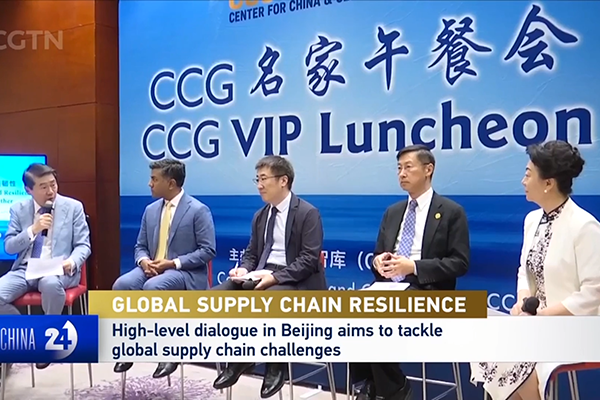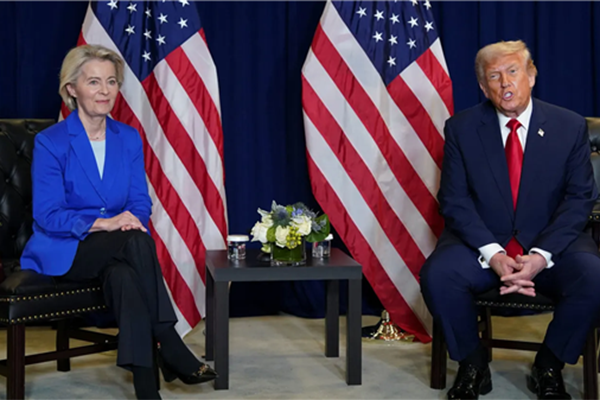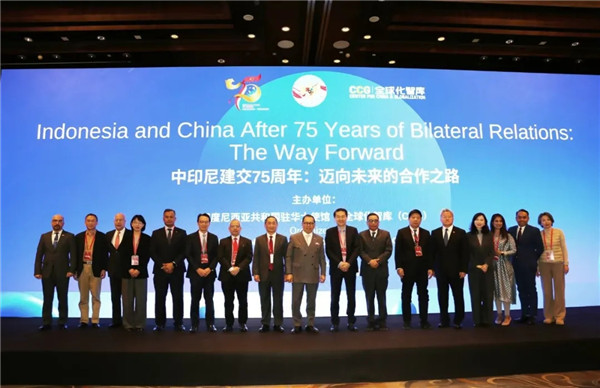【China Daily】Virus fight sets things right
April 21 , 2021Leading Italian American writer and communications specialist lauds China’s anti-pandemic success and growing global role of the country under CPC governance model, Alexis Hooi reports.
Editor’s note: Many people from overseas have made a contribution to China’s development over the years. As China celebrates the 100th anniversary of the founding of the Communist Party of China, China Daily looks at the lives and contributions of these friends from afar, who’ve not only witnessed but also participated in the country’s transformation over the years.
Early last year, at the height of fears about the coronavirus pandemic, Italian American writer Mario Cavolo decided the “vicious, political, xenophobic, racist attacks” targeting China needed to stop.
His social media post comparing the COVID-19 backlash with the H1N1 flu outbreak in the United States a decade ago quickly went viral, with millions of viewers worldwide agreeing that the smearing of China despite its success in fighting the coronavirus pandemic was grossly unfair.
The events spurred Cavolo, a leading China expert, M Communications Group CEO and senior fellow at the Beijing-based think tank Center for China and Globalization(CCG), to write his third book on the country by focusing on its anti-pandemic achievements in the months that followed.
The book is titled Something’s Not Right Here Folks, just like his impactful post.
“It’s not an economic analysis of China. It’s not a continuation of my previous books on China or a geopolitical book. It’s a book full of stories and an analysis of what happened from January to June, to commemorate the experience that we all went through here in China. And the Chinese people and the Chinese government have a lot to be proud of,” says Cavolo, who has lived in the country for two decades.
He says China has achieved getting the pandemic under control. “We see other countries are having such a difficult time doing the same thing. So it’s a testament to China.”
The success in fighting COVID-19 is itself one of the latest major examples of the benefits of a governance system under the Communist Party of China, which marks its centenary this year, Cavolo says.
Stable model
Highlighting the achievements amid the centennial celebrations, Cavolo says China’s “stable, capable model of governance” has most notably raised an unprecedented middle class and standard of living.
“A middle class that’s basically at this point, twice the size of the United States. We could spend so much more time focusing on the incredible implications of that one achievement right there,” Cavolo says.
“China’s current model of governance … is the efficiency of getting things done.”
The Chinese model includes crucial five-year plans and a feedback mechanism attuned to the real needs of the people, Cavolo says.
“The amazing thing about the five-year plans is that they implement what the government says needs to be done. In fact, the people were solicited-they were surveyed and asked, ‘What do you need? What does society need?’ Policy is formed, and then the government does its job.
“There’s plenty of democratic process within the Party system and in fact, within China’s Constitution. So the Chinese government goes out and asks its citizens, ‘What are your interests? What are your problems?’ This is done by an ongoing series of surveys. How does the government inform itself and know what to do if it doesn’t ask its citizens?
“Their system of governance, which is democratic, is to go out and ask everyone, find out what the citizens need. That information moves its way upward through the government, from the local villages into the cities, into the municipalities, into the provinces, and then ultimately up to Beijing where this is incorporated into and creates the formation of policy, which is what they’re executing and finalizing in the five-year plan. It’s a very managed, clear and efficient system,” Cavolo says.
The system is in turn well-placed to face the challenges ahead on the nation’s development path, in areas ranging from hukou (household registration) reform to rural healthcare, he says.
“For example, in order for continued achievement in poverty alleviation, we also need to look at hukou reform. Let’s make it easy for people in the countryside, in terms of their hukou, in terms of their eligibility for benefits-when they go to major cities like Guangzhou, Shanghai and Shenzhen seeking a better life,” Cavolo says.
“The hukou policies are getting better and better, but there’s still important work to do in that area, and it is being addressed.
“The government also understands that the root of what households need is safety and stability, and that includes healthcare.
“China has universal healthcare in that sense for its citizens. However, access to that healthcare in the rural areas and expansion of healthcare facilities (is needed)-new hospitals, local clinics, in villages, in the smaller third, fourth and fifth-tier cities. This expansion of healthcare has been going on and it still needs to continue in the future. It’s still not enough. And again, it’s all in the five-year plan.”
Sharing success
The achievements of the CPC-led development and governance are now clear enough to see, so that other developing nations are poised to tap them, he says.
“The China model is the most successful model. The world can see that. And the governments and leaders of other countries are indeed reaching out to China. The African continent is another example. South and Latin America are willing to collaborate and work with China; part of that is adopting their methods of governance because they work, because they’re successful. This is also happening very much so through the Belt and Road Initiative,” Cavolo says.
“So we have a successful, efficient, capable model of governance in place. That’s obvious. And that’s a good thing for the world. Because China is now even to the point where globally it’s reaching out through the Belt and Road Initiative; also through for example, related to the pandemic, the COVAX vaccine access program, reaching out and helping the world, becoming more of a global partner and the world needs it. Any country’s success is greater success for the world, and China understands that.”
The rest of the world should similarly better understand China’s increasingly important role for global development, Cavolo says.
“I don’t think China wants to be the world’s leader. No, I don’t think China wants to take up that mantle so much as to go out and say, ‘We’re capable. We’re efficient. We’re here to help. We can serve your interests. We’re willing to and we want to.’ The pandemic is a perfectly good example of this,” he says.
“The idea that China is offering vaccines, both donated and for sale all over the world, is a perfectly good example. This is not ‘vaccine diplomacy’. This is China saying ‘shared future’.
“The fact of the matter is that what China does need to do is continue to follow through on its commitments, that it wants to promote a shared future and continue backing that with action.”
Just like its anti-pandemic help extended worldwide, China’s efforts in the Belt and Road Initiative reflect its desire for shared progress, Cavolo says.
“Before the ‘vaccine diplomacy’ accusation, there was the ‘debt diplomacy’ accusation-that so many of these countries were being ‘indebted’ by the Belt and Road Initiative. And again, this is just political scaremongering. It’s political hubris. It’s not accurate. Research was done to clearly show that the deals that were made with other countries in the Belt and Road Initiative didn’t amount at all to ‘debt diplomacy’, but China actually working within the Belt and Road Initiative structure across the world to expand, to offer its capability in places like Latin America, in places like Africa, in the global south, and even reaching into Europe,” he says.
“Countries welcome a country that’s capable. You want to do business with and collaborate with someone when you see they’re capable, they’re successful, they know what they’re doing.”
From China Daily, 2021-4-21






